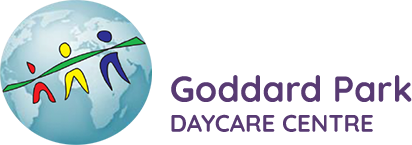Curriculum
Early Years Foundation Stage
There are seven areas of learning and development that set out what providers must teach the children in their settings. All areas of learning and development are important and inter-connected.
Three prime areas are particularly important for learning and forming relationships. They build a foundation for children to thrive and provide the basis for learning in all areas. These are the prime areas:
Communication and Language
Involve giving children opportunities to experience a rich language environment; to develop their confidence and skills, in expressing themselves and to speak and listen in a range of situations.
Speaking
- Learn new vocabulary
- Articulate their ideas and thoughts in well-formed sentences
- Use talk to help work resolve problems
- Organise thinking and activities
Understanding
- Connect their idea and action
- Understanding and following instructions
- Describing events
- Asking questions
Listening and Attention
- Listen to stories and songs
- Practicing active listening skills
- Focus building
Social Communication
- Engaging in pretend play
- Make themselves understood
- Understanding social etiquette and cues
- Socialise in interact with peers
Physical Development
Involves providing opportunities for young children to be active and interactive. To develop their co-ordination, control and movement. Children must also be helped to understand the importance of physical activity and to make healthy choices in relation to food.
Fine Motor Skills
- Hand control
- Using one handed tool
- Building a confident pencil grip
Gross motor skills
- Developing mobility
- Gain control of different body parts
- Following different actions and movements
- Mastering climbing and balance
Self-help Skills
- Dressing and undressing
- Tending to own toileting needs
- Eating and drinking independently
Personal, Social and Emotional Development
Helping Children to development a positive sense of self, and others. To form positive relationship and develop respect and care for others. To develop social skills and learn how to manage their feeling, to understand appropriate behaviours and have confidence in their own abilities.
Making Relationships
- Build positive attachments
- Make friendships
- Sharing in others play
- Understand and value differences, such as skin colour, types of hair, gender, special needs and disabilities, religion
Managing feeling and Behaviour
- Understand and share their emotions and feelings
- Manage transitions
- Learning turn taking, bargaining and negotiating
- Learning to share
Self-Confidence and Self awareness
- Establish their sense of self
- Express preferences and decisions
- Build independence
- Develop a sense of responsibility
Providers must also support children in four specific areas, which help strengthen and develop the three prime areas, and ignite children’s curiosity and enthusiasm. The specific areas are:
Literacy
Development involves encouraging children to link sounds and letters and to begin to read and write. Children must be given access to a wide range of reading materials (books, poems, labels, signage and other reading materials) to ignite their interest.
Reading
Understand the five key concepts about print:
- print has meaning
- print can have different purposes
- we read English text from left to right and from top to bottom
- the names of the different parts of a book
- page sequencing
- Enjoying and participating in songs and rhymes
- Listening to and sharing stories
- Using props to tell stories
- Count or clap syllables in a word
- Recognise written words
Writing
- Forming different, line, shapes and letters.
- Giving meaning to their drawings and writing
- Understanding lower-case and capital letters correctly
- Spell words by identifying the sounds and then writing the sound with letter/s
Mathematics
Involves providing children with opportunities to develop and improve their skills in counting, understanding and using numbers, calculating simple additions and subtraction problems; and to describe and understand, shape, space and measure.
Counting
- The importance of the number sequence
- Lots of practice is needed, saying and singing the number sequence (forwards and backwards)
- The pattern of the number system (and difficulty with teen number names)
- Putting numbers in order and spotting missing numbers
- Learning to recognise numerals
Cardinality
- How many-ness (e.g. three-ness of three)
- Subitising how many (recognising how many there are without counting)
- Giving each object a different number word to count how many
- Counting out a number of objects from a larger group (knowing the last number said is the number of objects counted so far)
Measurement
- Hands on experience of a range of measures (including: length, weight & capacity)
- Gradually developing familiarity with time and sequencing of the day
- Meaningful opportunities to compare length, weight and capacity
- Estimation and vocabulary are key
Pattern
- Pattern is about regularity
- It offers predictability and helps us to recognise order and structure
- Types of pattern: spatial, repeating and growing
- Patterns can be in objects, sounds, actions, events, etc.
Shape
- Focus on the properties of shapes- include irregular as well as regular shapes
- Experience shapes in context and in different orientations
- Composition: putting shapes together to make new shapes (and decomposition, taking shapes apart)
Space
- Relationships between objects and places (and self)
- Being able to visualise and mentally manipulate these relationships (including what things look like from different viewpoints)
- Use direction and position words
- Maps and routes around familiar places
Understanding the World
Involves guiding children to make sense of their physical world and their community. Through opportunities to explore, observe and find out about people, place, technology and the environment.
Technology
- Explore and understand different types of technology and what they are used for
The World
- Explore a range of different materials with a range of properties both inside and outside
- Explore and respond to different natural phenomena and similarities
- Learn about values
- Learn about different professions and how they might help us as a community
- Recycling
- Road safety
People and Community
- Notice differences and similarities in people and animals.
- Understand life cycles
Understand, respect and care for the natural environment and all living
Expressive Arts and Design
Involves enabling children to explore and play with a wide range of media and materials. As well as providing regular opportunities and encouragement for sharing their thought’s, ideas and feelings. Through using variety of activities in art, music, movement, dance, role-play, design and technology.
The frequency, repetition and depth of their experiences are fundamental to their progress in interpreting and appreciating what they hear, respond to and observe.
Being Imaginative
- Develop pretend play
- Create and share play ideas
- Create structures using a range of constructive materials (Scaffolding)
- Use art and design to express own emotions
- Make up own songs, rhymes and stories.
Exploring and using Media and Materials
- Explore and experiment with different sounds and types of music
- Move and dance to music or a regular beat.
- Create own art using range of mark making tools
- Explore a range of different materials with a range of properties both inside and outside.
- Explore and learn about the five senses




 Welcombe Avenue, Park North,
Swindon, Wiltshire, SN3 2QN
Welcombe Avenue, Park North,
Swindon, Wiltshire, SN3 2QN 01793 342 347
01793 342 347